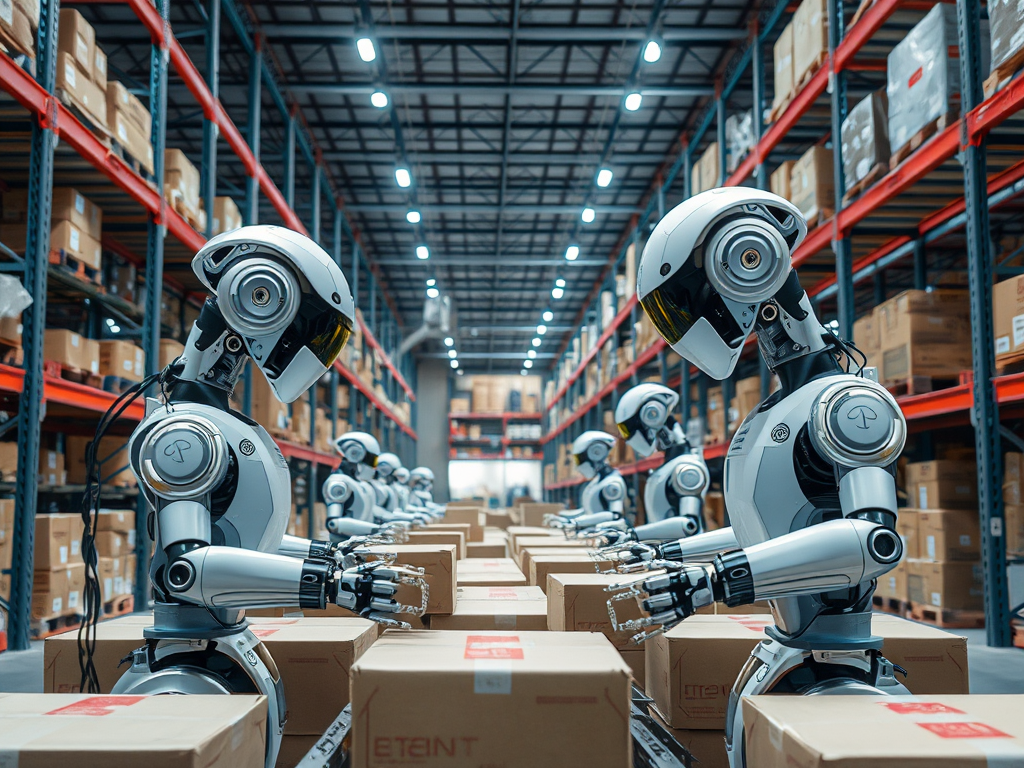Dubai’s logistics industry is on the verge of a transformative leap thanks to the integration of artificial intelligence (AI). As a global trade hub, the city is leveraging AI technology to enhance efficiency, reduce operational costs, and improve customer satisfaction within the logistics sector. The potential for growth is immense, driven by innovation and a strategic vision that positions Dubai as a leader in AI-powered logistics.
The Current State of Dubai’s Logistics Industry

Dubai’s logistics industry has been evolving rapidly, fueled by its strategic geographic location and world-class infrastructure. The emirate has developed significant logistics parks, advanced warehousing solutions, and integrated supply chains that cater to international markets. Current logistics operations in Dubai include:
- Air Cargo Services: With Dubai International Airport being one of the busiest cargo hubs.
- Sea Freight and Shipping: Jebel Ali Port is a key player in global maritime trade.
- Last-Mile Delivery: Innovative solutions for seamless product delivery to consumers.
- Customs Clearance Services: Streamlined procedures enhance the speed of operations.
The logistics sector in Dubai is a critical driver of the economy, contributing significantly to trade and commerce while fostering job creation. However, traditional practices face challenges such as inefficiencies, rising operational costs, and the need for improved customer experiences, which is where AI adoption becomes pivotal.
AI Innovations Transforming Logistics

The integration of AI technologies is revolutionizing logistics in Dubai by automating processes, optimizing operations, and providing actionable insights. Some key AI applications making an impact include:
- Predictive Analysis: AI algorithms analyze historical data to forecast demand, leading to better inventory management.
- Autonomous Vehicles: Self-driving trucks and drones are streamlining last-mile delivery, reducing delivery times while cutting costs.
- Route Optimization: AI systems calculate the most efficient delivery routes in real-time, improving fuel efficiency and reducing operational delays.
- Warehouse Automation: Robotics powered by AI can sort, store, and retrieve goods more efficiently than manual labor.
The influence of AI in logistics creates a smarter, more responsive model that significantly enhances operational efficiency and customer satisfaction in Dubai.
Economic Impact of AI-Powered Logistics
The advent of AI in logistics is anticipated to bring about considerable economic benefits for Dubai. As AI-driven solutions pave the way for increased efficiency, businesses can expect:
- Cost Reduction: Automated processes can lower labor costs and minimize waste.
- Increased Revenue: Enhanced operational capabilities can improve service offerings and customer satisfaction.
- Job Creation: While some manual jobs may be automated, AI also creates opportunities in technology, management, and logistics strategy.
- Global Competitiveness: Embracing innovation positions Dubai as a front-runner in the global logistics landscape.
Overall, the economic upside associated with AI-powered logistics is expansive, promising a more sustainable and profitable future for Dubai’s logistics industry.
Dubai’s ambitious vision for its logistics industry to become a leader on the global stage is already being laid out through various strategic initiatives. Key areas focused on in the roadmap ahead include:
- Investment in Technology: Continued investment in AI technologies to enhance infrastructure and operational frameworks.
- Public-Private Partnerships: Collaborations between government and private sectors to foster innovation.
- Training and Skill Development: Programs designed to upskill the workforce to adapt to new technologies.
- Sustainability Initiatives: Adoption of green technologies and practices that align with global sustainability goals.
- Global Partnerships: Building alliances with key logistics players worldwide to enhance service offerings.
By pursuing these initiatives, Dubai aims to solidify its position as a key player in global logistics powered by AI.
Conclusion
The potential of Dubai’s AI-powered logistics industry is immense, offering various pathways for increased efficiency, economic growth, and global competitiveness. As AI technologies continue to be integrated, they promise to transform logistics operations fundamentally, enabling a smarter and more streamlined industry. By fostering innovation and investing in the necessary infrastructure and workforce, Dubai is not just keeping pace with global trends but is positioning itself at the forefront of the logistics revolution.
Frequently Asked Questions
1. How is AI changing logistics in Dubai?
AI is optimizing logistics operations by automating processes, improving inventory management, and enhancing customer service through predictive analytics and real-time data insights.
2. What are the main benefits of AI in logistics?
The main benefits include cost reduction, improved operational efficiency, enhanced customer satisfaction, and the ability to forecast demand and manage inventory more effectively.
3. What role does Dubai play in global logistics?
Dubai serves as a crucial trade hub due to its strategic location, advanced infrastructure, and extensive air and sea cargo facilities, making it a focal point for international logistics operations.
4. Are there job opportunities in AI logistics in Dubai?
Yes, the growth of AI in logistics is creating new job opportunities in technology development, data analysis, and logistics management while requiring upskilling of the existing workforce.
5. What future trends can we expect in Dubai’s logistics industry?
Future trends include increased investment in technology, greater emphasis on data analytics, the rise of autonomous vehicles, and a focus on sustainability practices within logistics.


